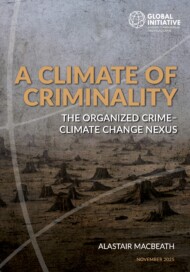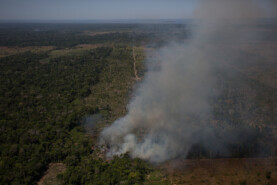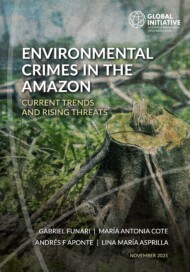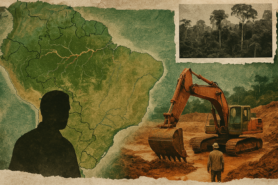Posted on 14 Nov 2025
Understanding the links between organized crime and climate change is crucial to developing effective global responses. This report explores how these two phenomena intersect and reinforce one another, mapping what it calls the organized crime–climate change nexus.
The report finds that climate change is both a driver and a consequence of organized crime. On one hand, environmental degradation and resource scarcity weaken governance systems, disrupt livelihoods, and create instability, conditions that allow illicit markets to flourish. On the other hand, criminal activities such as illegal logging, the illegal wildlife trade, illegal, unreported and unregulated (IUU) fishing, illegal mining, and the illegal waste trade directly harm the environment and accelerate climate change.
The report categorizes the relationship into three main types:
- Direct impacts: Criminal activities that damage ecosystems and increase emissions.
- Indirect impacts: Crimes such as human smuggling and trafficking, gang proliferation and urban violence, which intensify social and environmental pressures.
- Facilitators: Corruption and money laundering that enable and conceal these crimes while undermining environmental governance.
Examples from around the world illustrate how these dynamics play out. In Nigeria and Bangladesh, climate-driven displacement has created new illicit markets and heightened insecurity. In tropical forests, illegal logging and deforestation destroy natural carbon sinks, while IUU fishing damages ocean ecosystems that help regulate the global climate. In mineral-rich countries, growing demand for “green” minerals has spurred illicit mining and corruption.
The organized crime–climate change nexus also poses significant challenges for climate action. Organized criminal activity can stifle environmental protection efforts, divert state resources, and weaken enforcement. Climate change programmes, particularly in regions with high criminality, are vulnerable to corruption, fraud, and the infiltration of criminal actors into state or private institutions. This undermines both governance and sustainability.
The report emphasizes that responses must be integrated. Climate change programming should consider the risks posed by organized crime, while research and policy on organized crime should incorporate climate considerations. Only by bridging these two agendas can governments, civil society, and international organizations mitigate the mutually reinforcing harms of crime and climate change.
As the frequency and severity of climate-related events increase, these intertwined challenges will intensify. The report calls for greater awareness among policymakers and practitioners of how organized crime and climate change interact, and for coordinated global action that addresses both simultaneously.




